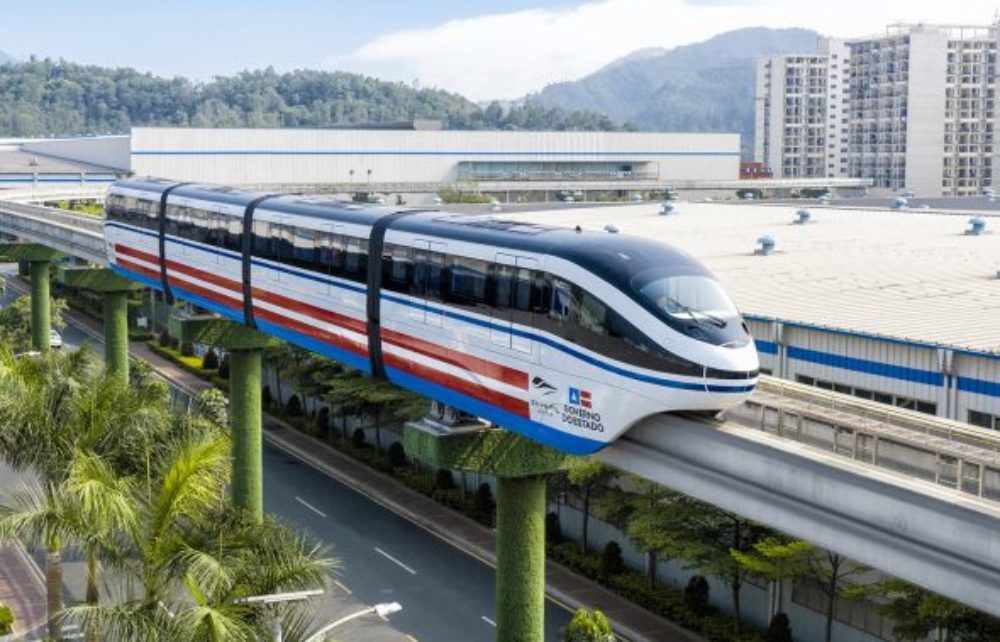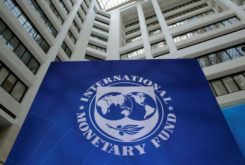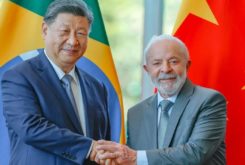Brazil´s Bahia SkyRail vehicle has come out of the production line in Shenzhen, builder BYD announced.
Held at BYD’s global headquarters in Shenzhen, the online ceremony was witnessed by Rui Costa, Governor of Bahia; Joao Leao, Vice Governor of Bahia; and Mrs. Shao Yingjun, Minister for Commercial Affairs of the Chinese Embassy.
Governor Rui Costa insisted that the VLT do Suburbio symbolizes an important international partnership for the modernization of urban transport.
“After placing Bahia as the second metro extension in Brazil, we now take a large step towards modernization with this modern vehicle that will replace a train that no longer met operating conditions,” commented Rui Costa.
Stella Li, Executive Vice President of BYD Company Limited & President of BYD Motors Inc., said, “Brazil has embraced BYD’s green, zero-emission transport offerings across the board, including pure electric buses, trucks, taxis and the SkyRail, making the country the leading model for eco-friendly transport in Latin America”.
“In the future, BYD will continue to work hard with its leading new energy technology and high-quality rail transit offerings to help cities around the world build low-carbon transportation and achieve sustainable development”, Lli added.
The Bahia SkyRail has been specially customized to meet local regulations and needs, as the world’s first SkyRail line built for an overseas market.
The vehicle adopts a streamlined design, which reduces wind resistance while enhancing the overall aesthetics, according to BYD.
Additionally, SkyRail is equipped with a fully automatic operation system with cutting-edge train control technology and an intelligent customer service system, which realizes a high degree of train automation. It enables more precise operations control, resulting in higher reliability, safety, operational efficiency, and punctuality.
The Bahia SkyRail Line has 25 stations covering a total length of 23.3km. It will be connected with Bahia’s existing subway to form a comprehensive public transportation network.
Due to various factors such as local topography, community structure, demolition costs, and passenger volume, the Bahia SkyRail was customized to adhere to several extremely stringent technical standards, all of which it met.
SkyRail is a straddle-type monorail system developed by a dedicated 1,000-strong R&D team following five years of research and development worth 5 billion RMB, which aims to solve traffic congestion in cities.
“With a minimum turning radius of only 45 meters and able to climb gradients of 10%, SkyRail is well adapted to Salvador’s difficult terrain. What’s more, advanced autonomous driving technology together with a striking and futuristic appearance allows the SkyRail to seamlessly fit into modern urban environments”, BYD says.
“SkyRail’s unique technologies have overcome many of the difficulties of construction and operation in Bahia. For example, the elevated tracks don’t occupy valuable road surface, meaning the space below them still can be rebuilt into pedestrianized areas, and their elevated position keeps them free from flooding, which has been a problem for the city’s existing rail network”, it adds.
Thanks to the integrated line monitoring system and the intelligent operations system, SkyRail can immediately identify risks, solve problems, and reduce manual workloads. Besides offering comfortable, low-carbon and efficient public transport for residents, the expectation is that SkyRail will also help attract new businesses and visitors to the area, aiding the government’s efforts to boost local tourism.
China says Relations With Brazil are “Strategic and Long-Term”
In Brazil, BYD has already forged cooperation with two cities, among them Sao Paulo, for which the formal contract to build the metro network’s Line 17 was signed on April 27, 2020.
BYD Company Ltd. is one of China’s largest privately-owned enterprises, with expertise in rechargeable batteries, renewable energy solutions and a Zero Emissions Energy Ecosystem – comprising affordable solar power generation, reliable energy storage, and cutting-edge electrified transportation .




